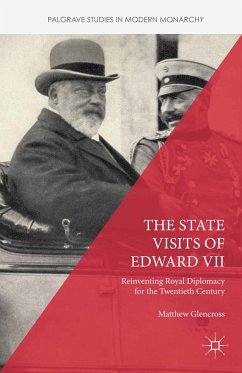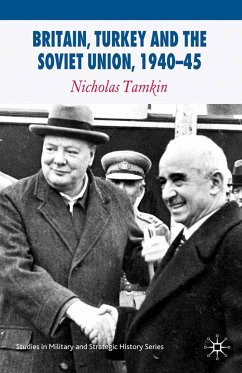Dieser Download kann aus rechtlichen Gründen nur mit Rechnungsadresse in A, B, BG, CY, CZ, D, DK, EW, E, FIN, F, GR, HR, H, IRL, I, LT, L, LR, M, NL, PL, P, R, S, SLO, SK ausgeliefert werden.
Hinweis: Dieser Artikel kann nur an eine deutsche Lieferadresse ausgeliefert werden.
'This important book fills a chronic gap in the historiography of appeasement. Peter Neville's book is the first major study of a subject far too long neglected and slighted. For over fifty years Sir Nevile Henderson, Britain's ambassador to Berlin 1937-9, has been almost uniformly written off by historians and branded as a prime scape-goat for appeasement. For the first time Peter Neville puts the case for Henderson and places him fairly and convincingly in context as an experienced and hitherto well thought-of diplomat attempting to cope in an impossible situation.' - A. Lentin, Reader in History, The Open University
'...well-researched...makes a significant contribution to the still growing literature on the years of appeasement.' - D.J. Dutton, Diplomacy & Statecraft
'...a vibrant and articulate book that deserves to be read.' - N.J. Crowson, Contemporary British History









